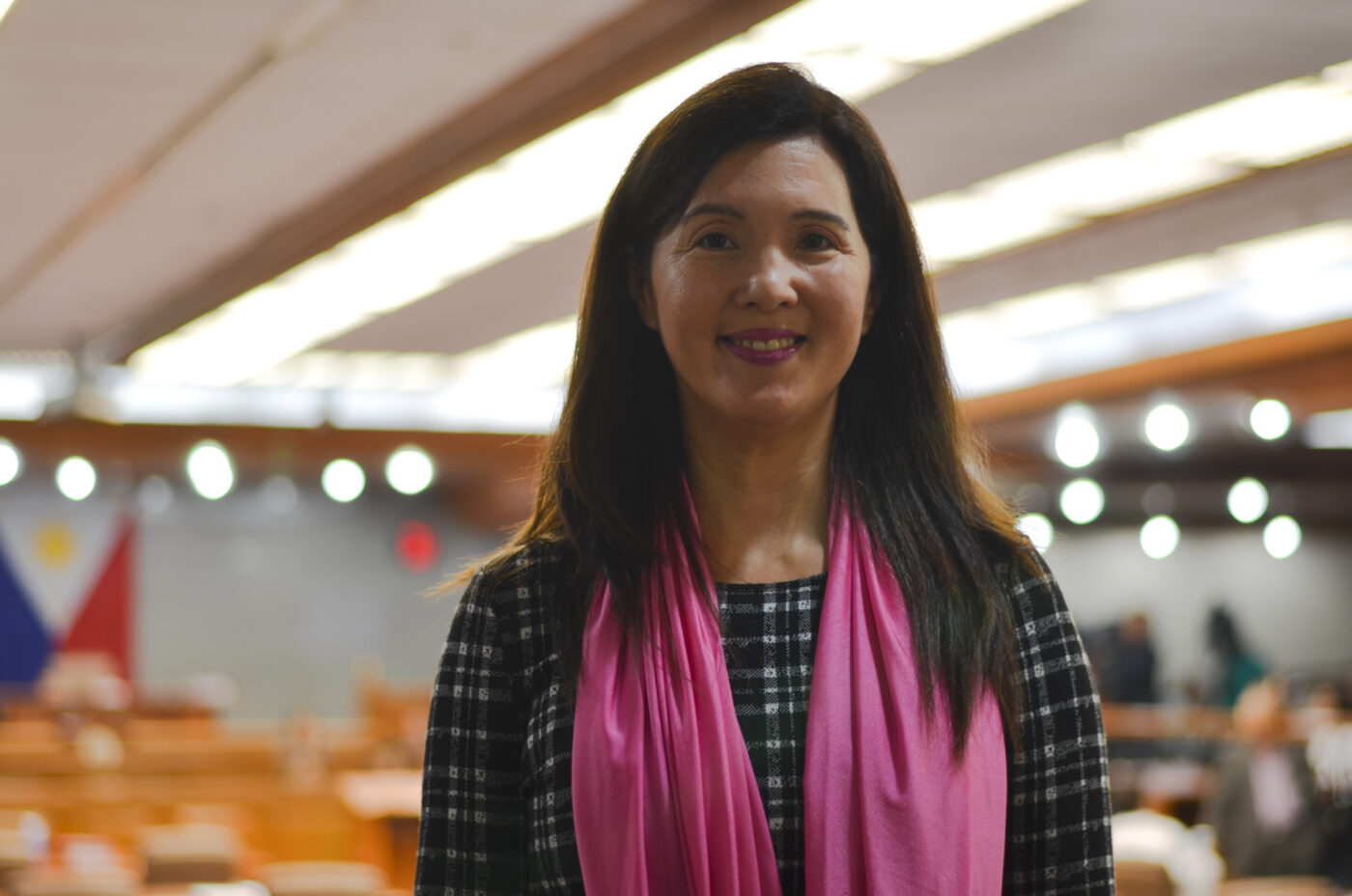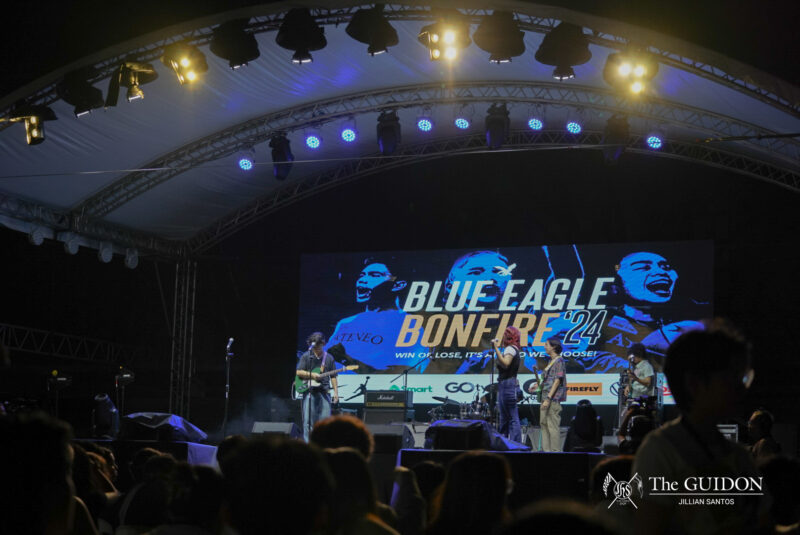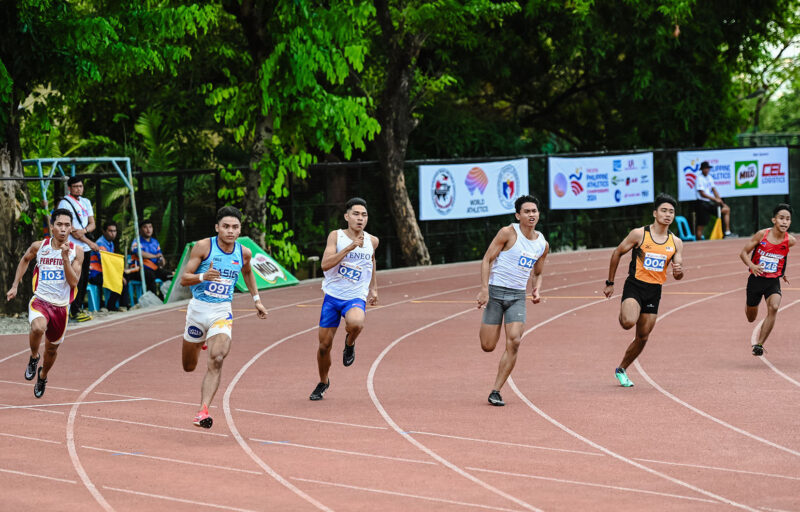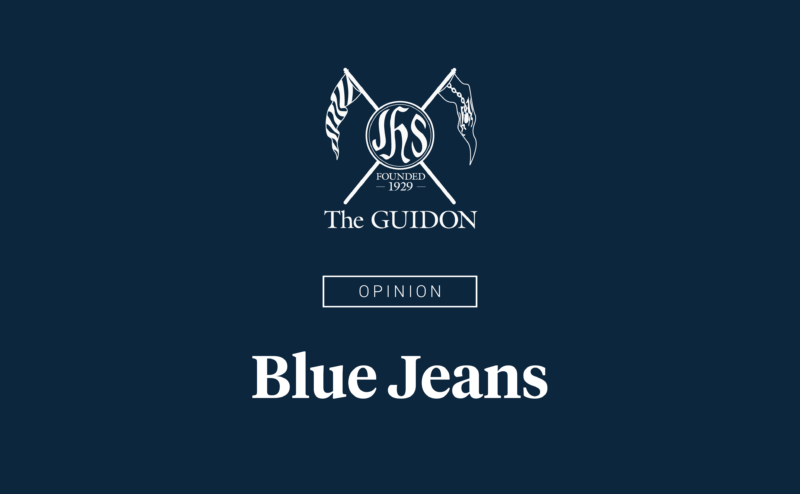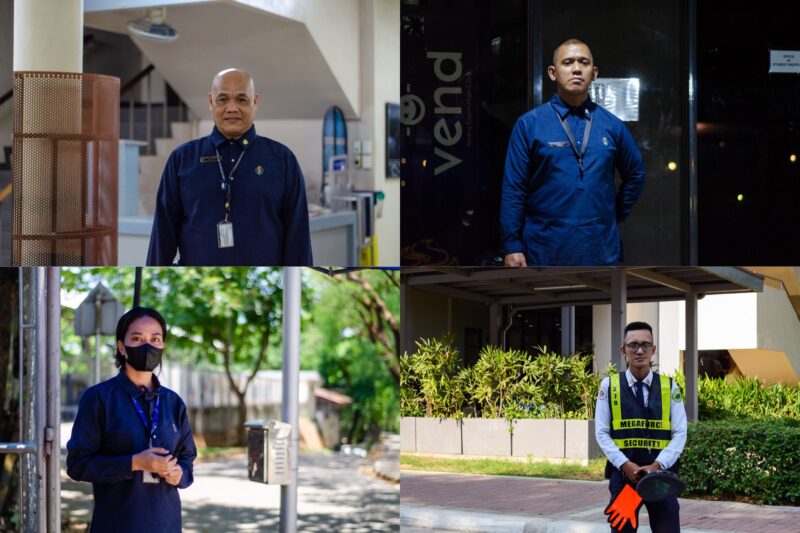FOR MANY aspiring athletes, playing for the Ateneo is a dream come true–a return on the investment of hours spent practicing through blood, sweat, and tears. But more than the prestige of donning the blue and white, what convinces athletes to spend their college years in Katipunan is the quality of education they will be receiving and the opportunity to secure a good future once they hang up their shoes. Thus, the promise of an Atenean diploma lures new students to suit up as Blue Eagles every year, each tasked with the common goal of bringing a trophy back to the Loyola Schools.
The Ateneo opens its doors to dozens of student-athletes, inviting some of the best in the country to represent the school in one of the biggest collegiate sports tournaments in the nation–the University Athletic Association of the Philippines (UAAP). However, early in 2013, the UAAP Board passed a new residency rule, which required high school students transferring from one member school to another to sit out two years unless given clearance by their former institution. With cries of injustice from all sides arguing that such a law tremendously hindered the student-athlete’s right to freedom of education, the implementation of residency made tremors across the sports community, its epicenter located in the far east with one name–Jerie Pingoy.
Before deciding to suit up for the Blue and White, Pingoy was in a recruitment tug-of-war between Far Eastern University (FEU) and the Ateneo. After all, he was arguably the most sought after player in his high school class after winning back-to-back Most Valuable Player (MVP) awards in the UAAP Juniors division. He also led the Baby Tamaraws to their first Juniors championship in 25 years during his senior stint.
However, Pingoy recalls that, in the course of the recruitment process, he had heard rumblings about his former alma mater’s plan if he ever decided to jump ship. “May sabi-sabi na gagawa ang FEU ng rule for two years na ‘di ako makapaglaro (There were rumors going on that FEU was going to make a rule that I could not play for two years),” he recalls.
Such hearsay had its roots in the “Soc Rivera rule,” a colloquially-named mandate which was passed by the UAAP Board in May 2007. The rule required just one year of residency from high school players transferring from one member school to another. But with a year of residency suddenly extended to two, Pingoy’s time as a Blue Eagle would have to wait.
This was the scenario for many athletes across the eight constituent schools of the UAAP at the time. Point guard Hubert Cani–after steering the National University Bullpups to a Juniors championship in Season 76–was also forced to sit out last season to wait out his period of residency after pledging his allegiance to the Ateneo. As the new rule took its effect on the entire league, it seemed as if personal choice of schooling and the development of athletic skill became mutually exclusive for the athletes. Their plight, however, did not go unheeded.
A senator’s response
With student-athletes struggling against the renamed “Jerie Pingoy rule,” Senator Pia Cayetano saw it as a serious violation of their basic human rights. “When I filed the bill that eventually became the Student-Athletes Protection Bill, my main objective was to address the unjust practice of residency rules,” she says. “The policy restricts their choice of school and their growth as athletes.”
Citing that the 14th article of the 1987 Constitution provided for the protection of the right of citizens to quality education as well as the promotion of physical education for a healthy citizenry, Cayetano argued that the State should support the rights of student-athletes to develop their own skills and talents without ignoring their education. The senator–a former volleyball player for the University of the Philippines Maroons, a former member of the national team, and a staunch advocate of youth development for sports–maintained that student-athletes are, first and foremost, students. As such, Cayetano reasoned that they should be given the opportunity to study where they think they can reach their full academic and athletic potential.
The ratification of Senate Bill No. 2226 marked the dawn of a new day for student-athletes around the country. Cayetano’s fight against the restriction of educational liberty ended the struggle of athletes like Pingoy and impressed upon academic institutions everywhere the importance of the protection of their students’ individual rights. “Student-athletes need strong support in order to thrive in both academics and the sport of their choice,” the senator says. “This support should come from the government through laws and policies that will protect their rights and further enhance their talents and skills.”
An athlete’s decision
The abolition of the residency rule shines the limelight on players like Pingoy and Cani, for whom choosing the Ateneo stemmed from more than just athletics. They had hoped to attend a school that would give them quality education and that could help them after their basketball playing days are over. “Gusto ko talaga mag-aral and makatulong sa pamilya ko. Ano man mangyari sa basketball, gragraduate naman ako sa Ateneo na may diploma (I really want to study and help my family out. Whatever happens with basketball, I will graduate from the Ateneo with a diploma),” Pingoy says.
“Iba yung education sa Ateneo sa ibang school (The education in the Ateneo is different from other schools),” Cani echoes. “Maganda ang makukuha mo sa Ateneo. Lalo na kung grumaduate ka, madali makakuha ng trabaho (The Ateneo offers a good education. Especially when you graduate, it is very easy to get a job).”
However, the Season 76 Juniors Finals MVP said that the rule did not affect his decision as much as others thought it did. “May Team B (There’s Team B),” Cani explains. Team Glory Be, Team B of the Men’s Basketball squad, is where both Cani and Pingoy spent the last couple of years training and honing their skills. “‘Di naman kami mababakante. ‘Di naman ako natakot o nag-worry na mababakante ako nang two years or one year (I wasn’t scared or worried that I wouldn’t be doing anything for one or two years),” Cani says.
Pingoy says that he has no regrets sitting out the past two seasons because of this infamous rule. He maintains that throughout the process, he was at peace with his decision because it was one that was agreed by him and his entire family. “Ang sabi ko sa sarili ko na kung ano man mangyari, everything happens for a reason. Tatanggapin ko kasi desisyon ko naman ito at desisyon ng family ko (I told myself that whatever happens, everything happens for a reason. I will accept it because it is my and my family’s decision),” he says.
The two-year hiatus has built up a lot of publicity–especially with the passing of Cayetano’s bill and the recent stir it caused regarding the final say on Cani’s eligibility. For both players, there now exists pressure to live up to expectations and to prove that the wait was worth it. However, the two downplay their situation, wanting to focus on their team’s success instead of how they should perform.
Rather than having their names tied to this controversial rule, Pingoy and Cani want to be remembered as champions. With these Blue Eagles’ sentences finally served, both simply want to prove that this rule was just delaying the inevitable.

